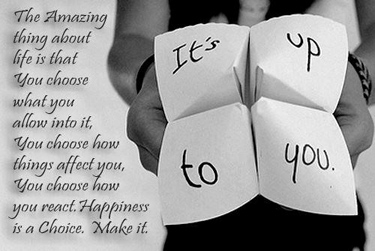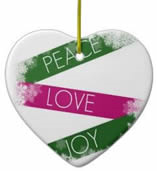 |
||
|

Kathy Wells Paauw
Productivity ConsultantCertified Business & Personal Coach
Trainer
____________
FREE EZINE
Please share this article with others. Forward it to your friends or print it for easy distribution within your office.
Was this forwarded to you by a friend? Click on the logo below to subscribe today.
Paauwer Tools has been published monthly since 2000. Click here to view all previous issues.
___________

Read about Kathy's book, The Music of Your Heart.
____________
FREE BLOG
___________
FREE TELECLASSES
Attend FREE classes taught over the phone. Learn how to increase your productivity with tips, strategies and techniques that can benefit your professional and personal life immediately.__________
FREE TIPS
Check out my FREE tips. I offer many valuable tips about time management and organization.
____________
VISIT OUR OTHER
WEB SITES:
Connect with those you care about:
Keep in touch with family, friends, prospects and clients by sending a quality personalized greeting card in the mail for a dollar. We'll show you how to create and send a personalized greeting card in 2 minutes!
___________
PRODUCTIVITY TOOLS
More productivity tech tools...
_______________
RECOMMENDED BOOKS
Check out our links to some great books:
___________
PERMISSION TO PUBLISH THIS ARTICLE ELSEWHERE
If you like this article, feel free to share it with your own list, post it on your site or on your blog, or print it out to distribute...as long as you leave the text intact, include all hyperlinks, and include this at the end: ©2000-2013 Paauw Enterprises, Inc. All Rights Reserved. Wouldn't you love to stumble upon a secret library of ideas to help you de-clutter your life so you can focus on what’s most important? Kathy Paauw offers simple, yet powerful ideas, on how to manage your time, space, and thoughts for a more productive and fulfilling life. Visit www.orgcoach.net
Subscribe to ezine at www.orgcoach.net/
subscribeme.html
___________
Happiness is a Choice
Nine years ago, some personal events tumbled my life upside down and forced me to completely reorder my priorities. During this tumultuous time, I was invited to begin a daily gratitude practice that changed my life. A friend asked me to commit to beginning my day each day by sending a card of gratitude or appreciation to someone. Although I was not feeling very grateful at the time, I agreed to do it and I pushed myself each morning to begin my day this way. I discovered the healing power of extending myself to others, and how easily I can motivate, uplift, and make a difference by the simple gesture of sending a note of appreciation or encouragement to those I care about. In doing so, I also felt more connected, and my depression lifted. This was such a powerful new habit that I decided to continue doing it. Nine years later I am still beginning my day by thinking of someone I appreciate and expressing gratitude by sending a card. Are you feeling disconnected? It makes sense to reach out to others when we feel discouraged and isolated, but human nature is to withdraw even more when we feel that way. Unfortunately, if you keep doing what you're doing, you'll keep getting what you're getting. Look at what you are giving and it may provide a clue as to why you are getting what you're getting. Numerous human development studies suggest it is easier to reach out and express ourselves in writing than it is verbally. But all of this takes so much time and effort that most of us just don't do it as often as we intend to. Some of the greatest minds of the past century have been telling us the keys to success involve sharing regular appreciation with others. Abraham Lincoln stated that "everybody likes a compliment." This is how he ran our country and became one of the greatest political leaders of all time; he simply complimented people. American psychologist and philosopher William James said: "The deepest principle in human nature is the craving to be appreciated." I can already hear business-minded people saying, "OK, that's great, Kathy, but what does this mean to my bottom line? How can I prosper financially by implementing these principles?" Let's take a look at what history has taught us:
When was the last time you told your son or daughter that you were proud of them, or your employee that they did a great job, or your spouse or significant other that you love them, or your friend that you appreciate their friendship, or your customer that you appreciate their business? We as human beings crave appreciation. When we show it, people will respond to us in the most positive ways possible...personally and professionally. Most of us have good intentions to express appreciation, concern, and compassion...but we seldom follow through with those intentions. The difference between success and failure in your life will depend on your ability to follow through with your intentions. Have you said everything you want to say to those you care about? If they died tomorrow, would you feel like you'd said what you wanted and needed to say? Shortly after my mother passed away last year, I was going through a stack of cards sent from friends. I was touched that so many people took the time to reach out and connect during a challenging time in my life. One card really brought tears to my eyes. The inside of the card contained one of my favorite pictures of me and my mom--a photo I had posted to Facebook the day she died. A friend took that photo, put it in the card, and wrote some heart-felt words inside. I thought about how much that card impacted me, and I realized that I can have that same impact on others. I've been sending personalized cards like that for nine years. It's so true that what we send out comes back. Although I don't send cards with an expectation of getting anything in return, it's amazing how much more connected and supported I've felt since I started expressing daily gratitude. And beginning my day with gratitude sets the tone for the whole day! When you incorporate an attitude of gratitude into your life, everything changes. It's impossible to be filled with anxiety, worry or fear when you're focusing on gratitude. Scientists and researchers have discovered that expressing gratitude creates measurable change with lower blood pressure, increased energy, better sleep habits, and fewer sick days. Grateful people are also happier. How do you define happiness? Tal David Ben-Shahar, a professor who has pioneered a psychology class called "Happiness 101: Positive Psychology" defines it as "the intersection between pleasure and meaning. Experiences can be either pleasurable or meaningful or both. Happiness is the overlap of the two." Humans have a fundamental need to be happy. Ben-Shahar wants his goal-oriented Harvard students to learn that happiness is the ultimate currency, not money or success. The course teaches students to focus on the journey rather than the material results of what they're going to get. In other words, one can enjoy every step of the process and appreciate all of the little things along the way. Topics covered in Happiness 101 include gratitude, goal setting, relationships, love, self-esteem, and the mind-body connection. "The thing that's changed me the most is the idea of Dr. Martin E. P. Seligman, a psychologist at the University of Pennsylvania, tested the impact of various positive psychology interventions on 411 people, each compared with a control assignment of writing about early memories. When their week's assignment was to write and personally deliver a letter of gratitude to someone who had never been properly thanked for his or her kindness, participants immediately exhibited a huge increase in happiness scores. This impact was greater than that from any other intervention, with benefits lasting for a month. So today--right now--jump into the practice of gratitude. Thank someone. Pay it forward. Help someone. Make a donation. Do something worthwhile. Fill your heart with gratitude, and your happiness score will increase, too! Wishing you a blessed, peaceful, and heart-centered holiday season.
© 2014 Paauw Enterprises, Inc., All Rights Reserved. |

